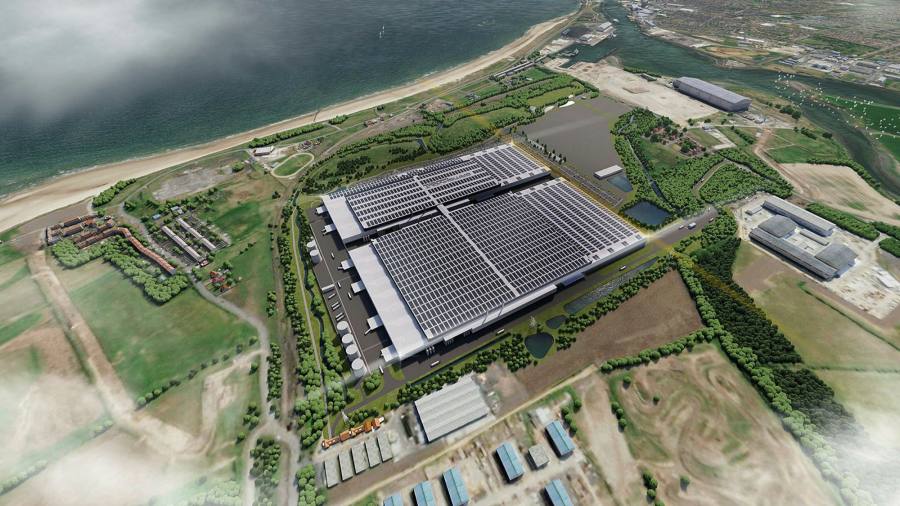A Monaco-based shipping company has taken a stake in Britishvolt, the UK start-up hoping to build a £3.8bn battery “gigafactory” in Northumberland.
The strategic investment by Scorpio Group is a sign of how some battery makers are looking beyond the automotive industry and into other markets such as shipping and aviation that also have large carbon footprints.
It comes as the global maritime industry debates how to decarbonise its operations, which account for almost 3 per cent of global greenhouse gas emissions — more than Germany.
With clean fuels such as green ammonia or hydrogen not widely available, the shipping industry has been focusing for long distance transport on vessels that can run on liquefied natural gas, a lower carbon alternative to heavy fuel oil.
Batteries are seen as a good solution for smaller ships. But some experts think they could also be used to power intra Europe voyages and on the vessels that build and service offshore wind farms. Tesla chief executive Elon Musk has said ships are the easiest mode of transport to electrify after cars.
Filippo Lauro, Scorpio’s vice-president, said the investment in Britishvolt would allow the company to work alongside the UK battery start-up to “further accelerate green propulsion” and examine power storage solutions for ships. The privately owned company has also invested in Freyr, the Norwegian battery cell maker.
Maritime transport is set to fall under Europe’s emissions trading scheme from next year, adding extra impetus to the decarbonisation drive. All intra-EU journeys and 50 per cent of trips to or from countries outside the bloc will be covered by the scheme. An EU parliament committee approved its inclusion this week, which now needs a final stage of rubber stamping.
“The challenge with electric propulsion is of course the weight it brings aboard which brings into play an estimate of 150-200 mile range for electrically powered vessels,” said Tom Chant, chief executive of the Society of Maritime Industries.
In January, Britishvolt raised around £1.7bn in funding from warehouse provider Tritax and investment group Abrdn to construct its factory. That investment was backed by a £100mn grant from the government’s Automotive Transformation Fund.
Glencore, the miner and commodity trader, also owns a stake in the company, which it purchased as a part of an earlier fundraising round that valued Britishvolt at more than £800mn.
Britishvolt has not disclosed the size of the stake held by Scorpio, which is controlled by a scion of the Lolli-Ghetti shipping family.
Britishvolt’s hopes to open the Blyth plant in 2023 and, once it reaches full capacity at the end of the decade, will produce enough batteries per year to power 300,000 electric cars.
The company, founded by former banker Orral Nadjari, has yet to publicly showcase its technology although it has signed memorandums of understanding with Aston Martin and sports car brand Lotus.
It is also working with Indonesia’s Bakrie family as it looks to secure supplies of nickel for its gigafactory.
“These more polluting, heavy-duty modes of transport need to look at best solutions for lowering emissions,” said Kasra Pezeshki, Britishvolt’s chief investment officer in a statement.


